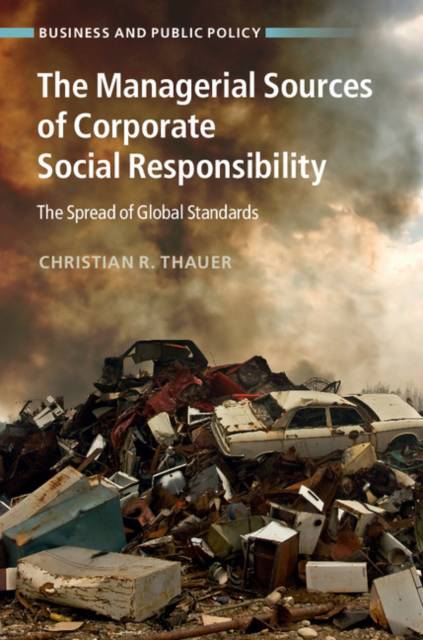
- Afhalen na 1 uur in een winkel met voorraad
- Gratis thuislevering in België vanaf € 30
- Ruim aanbod met 7 miljoen producten
- Afhalen na 1 uur in een winkel met voorraad
- Gratis thuislevering in België vanaf € 30
- Ruim aanbod met 7 miljoen producten
Zoeken
The Managerial Sources of Corporate Social Responsibility
The Spread of Global Standards
Christian R Thauer
€ 194,95
+ 389 punten
Uitvoering
Omschrijving
Why and under which conditions do companies voluntarily adopt high social and environmental standards? Christian R. Thauer looks inside the firm to illustrate the internal drivers of the social conduct of business. He argues that corporate social responsibility (CSR) assists decision-makers to resolve managerial dilemmas. Drawing on transaction cost economics, he asks why and which dilemmas bring CSR to the fore. In this context he describes a managerial dilemma as a situation where the execution of management's decisions transforms the mode of cooperation within the organization from a hierarchy to one in which managers become dependent on, and vulnerable to, the behavior of subordinates. Thauer provides empirical illustration of his theory by examining automotive and textile factories in South Africa and China. Thauer demonstrates that CSR is often driven by internal management problems rather than by the external pressures that corporations confront.
Specificaties
Betrokkenen
- Auteur(s):
- Uitgeverij:
Inhoud
- Aantal bladzijden:
- 352
- Taal:
- Engels
- Reeks:
Eigenschappen
- Productcode (EAN):
- 9781107066533
- Verschijningsdatum:
- 27/10/2014
- Uitvoering:
- Hardcover
- Formaat:
- Genaaid
- Afmetingen:
- 154 mm x 236 mm
- Gewicht:
- 585 g

Alleen bij Standaard Boekhandel
+ 389 punten op je klantenkaart van Standaard Boekhandel
Beoordelingen
We publiceren alleen reviews die voldoen aan de voorwaarden voor reviews. Bekijk onze voorwaarden voor reviews.











